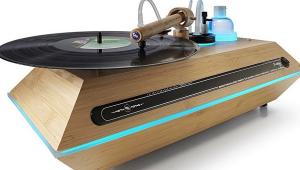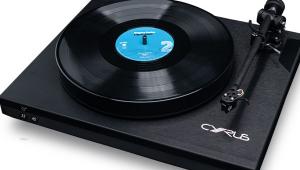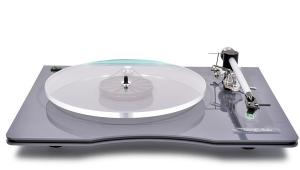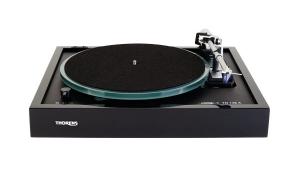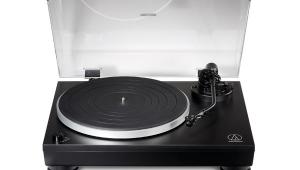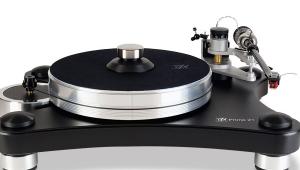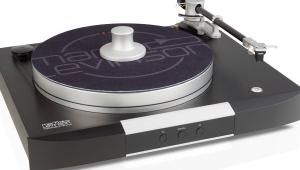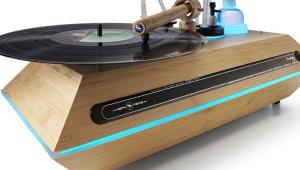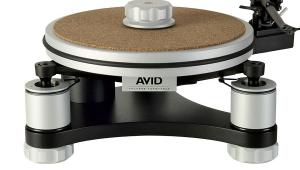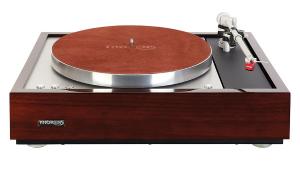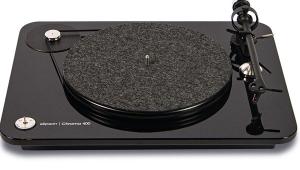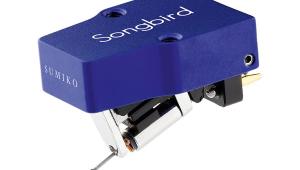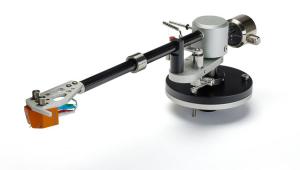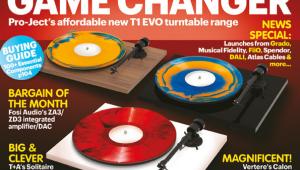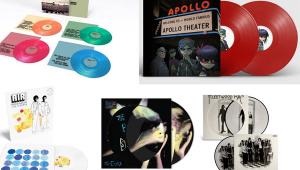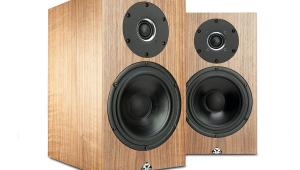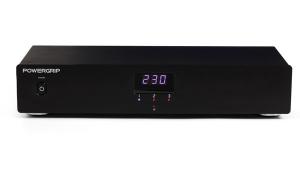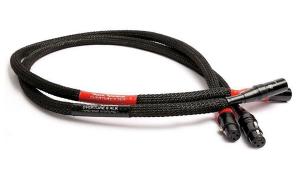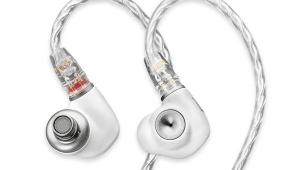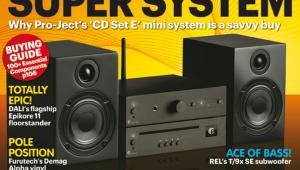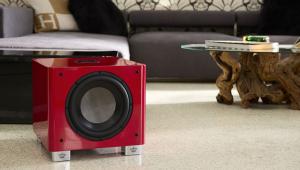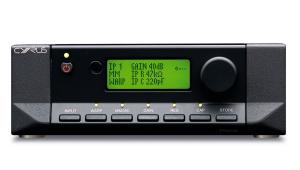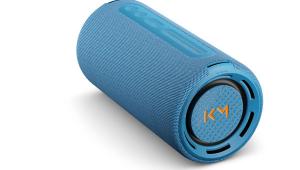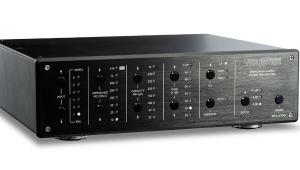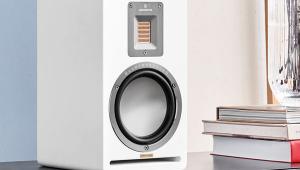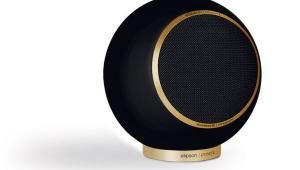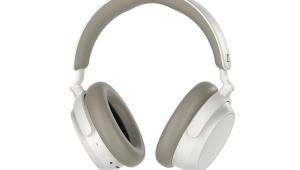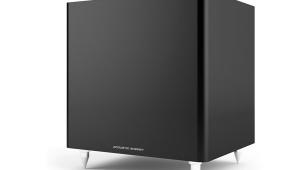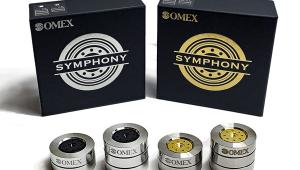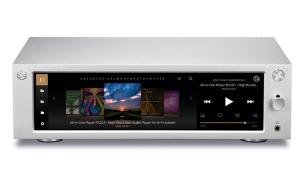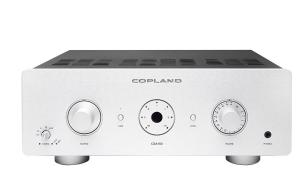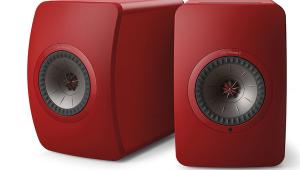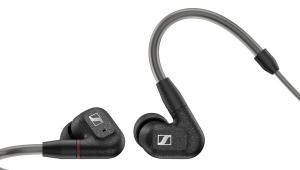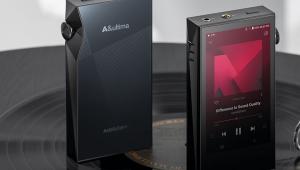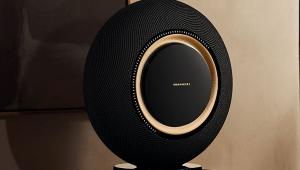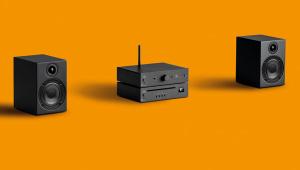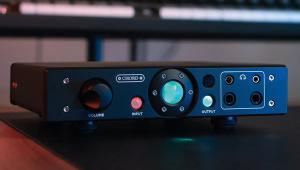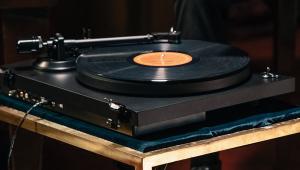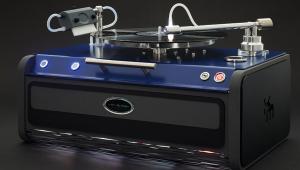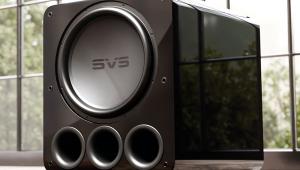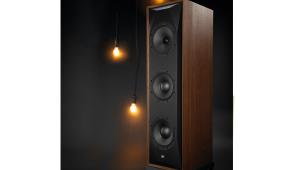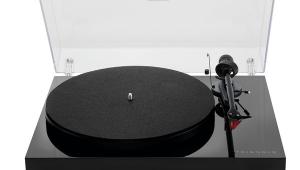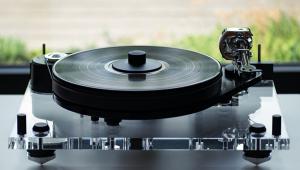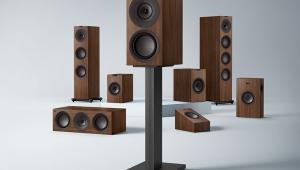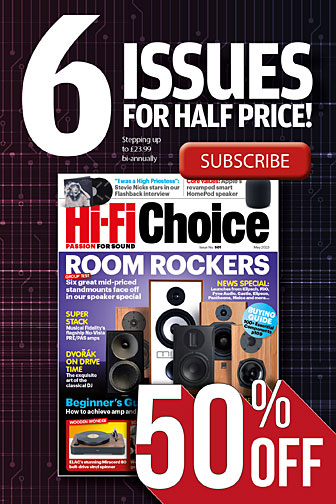Rega Planar 8
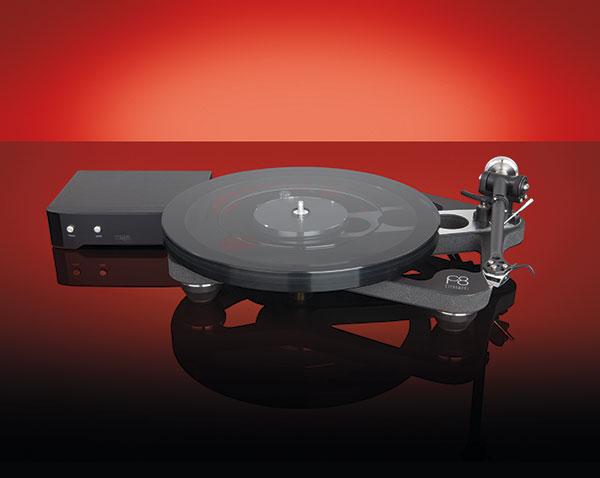
 Sometimes, the arrival of an entirely expected model can still be surprising. For the last couple of years Rega has been replacing its RP series of turntables with Planar decks, so it didn’t take an enormous amount of deduction to work out that this would continue up the range to include the RP8. What wasn’t so obvious is that the Planar 8 would be so different to its predecessor and almost every other Rega turntable that came before it.
Sometimes, the arrival of an entirely expected model can still be surprising. For the last couple of years Rega has been replacing its RP series of turntables with Planar decks, so it didn’t take an enormous amount of deduction to work out that this would continue up the range to include the RP8. What wasn’t so obvious is that the Planar 8 would be so different to its predecessor and almost every other Rega turntable that came before it.
The Planar 8 takes concepts that we have seen in the RP8 and Planar 6, but also borrows from the Naiad – the flagship design that’s built to order in extremely limited quantities that embodies design concepts that until now have not found their way into series production Rega turntables. The most important of these is the application of mass – employing it where it is needed and eliminating it where it isn’t.
In the case of where it isn’t, the main area where this has been tackled is the plinth. At first glance, the Planar 8 is very similar to the RP8 once the outer plinth of the older model is removed. In reality, the shape is different again and so is the construction and form. The Planar 8 plinth is 30 percent lighter than the RP8 and concentrates this on the ‘stressed beam’ principle we’ve seen on other Rega designs. This is partnered with a new bearing assembly that holds a one-piece spindle and sub-platter in a brass housing that’s placed in the chassis itself. Significant parts of the Planar 8 are as light as they can possibly be.
With this done, Rega then adds mass at the locations of its choosing. The platter is made of glass, but it is rather more complex than it might first appear. It is a three-piece laminate of two different types of glass with the thickest section at the outer edge. This allows it to have the heavy, ‘flywheel’-like properties that are advantageous in a platter, but for this weight to be concentrated at the outer edge and away from the bearing – which in turn reduces noise in the process.
The motor and power supply are similarly an interesting mixture of design practice we have seen before combined with technology from the Naiad. The 24V Neo PSU is the same as the one used in the Planar 6 (HFC 427). It borrows DSP technology from the RP10 and each unit is paired to a specific motor for the best possible partnership. As well as a clean power feed, you also get selectable speeds and easy fine adjustment. The motor is mounted in the same manner that was developed for the Naiad, with the bottom firmly attached to the chassis and the sides clear to reduce vibration. It acts on the platter via a belt made out a special rubber, again developed for the Naiad.
The RB880 tonearm is an evolution of the earlier 808. The main difference is a new bearing assembly that reduces the amount of unwanted movement to zero. A slimmer counterweight has been fitted that allows for greater fine adjustment. This latter innovation might sound superfluous, but it is by far the easiest Rega arm I’ve used to get the correct weight setting. For £1,699, the Planar 8 is supplied without a cartridge, but you can decide to have either an Ania (HFC 427) or Apheta 2 (HFC 425) fitted, taking the overall package price to £2,119 and £2,439 respectively. Some enterprising dealers have already listed a moving-magnet option too, but Rega feels that the Planar 8 works best with moving-coil cartridges.
All of the flagship Naiad DNA has resulted in a turntable that has fewer of the standard Rega styling features than usual and seeing it in the flesh I’m entirely sold on the design. Like the Planar 6, Rega has done a fine job of making this very light deck feel substantial too. It might sound strange, but the Planar 8 manages to make the anachronistic business of vinyl playback feel like a 21st-century activity.
Sound quality
The review sample is supplied with a factory-fitted Apheta 2 moving-coil cartridge, but to get a better handle on the behaviour of the Planar 8, I start by fitting a Nagaoka MP-200 moving-iron cartridge (HFC 434). Connected to a Cyrus Phono Signature (HFC 408) and Naim Uniti Star one-box system (HFC 433), the Planar 8 quite literally makes its presence felt. If this turntable doesn’t put to bed the notion that great analogue bass is tied to mass, I’m not sure what will.
The minimalist presentation of Zola Jesus’ Versions is underpinned by truly wonderful low end. It is tuneful, well integrated and delivered with plenty of force. A little less attention grabbing, the upper registers are equally as compelling and the Planar 8 gets all the basics right to make the vinyl sing. It is entirely pitch stable and silent at idle and this ensures that Nicole Hummel’s strong vocals are convincing and the interplay with the partnering string quartet is laid out in a completely obvious way. With no noise to affect your perception, the Rega is able to deliver a wonderful feeling of scale to even the biggest pieces of music.
Fitting the Ania moving-coil and stepping on to the first official rung of Rega’s cartridge ladder is an instantly worthwhile move. The Ania is slightly on the warm side of neutral and the partnership that this forms with the Planar 8 is extremely pleasant. Together they deliver a level of involvement to voices and instruments in particular that is beyond what the Nagaoka can achieve. The effect this has on White Winter Hymnal by Fleet Foxes is notable. Without losing any of the fundamental accuracy, there’s a level of emotional engagement that is hard to replicate in the digital domain.
One aspect of the performance that is immediate and ‘totally Rega’ is the effortless timing that the Planar 8 exhibits. It’s important to stress that this isn’t only with higher tempo material. The shuffling time signature of Fink’s Cold Feet provides a fine demonstration of this and the Planar 8 makes it enormous fun. It attacks the raucous Dig Your Own Hole by The Chemical Brothers in a way that has me wanting to down tools and enjoy myself. This is neatly balanced with an ability to work with less than stellar recordings in a way that flatters without sacrificing fine detail.
Installing the Apheta 2 cartridge amplifies many of the attributes of the Planar 8. This is a very fast and potent-sounding cartridge. Connected to a device as agile and responsive as this deck is to experience vinyl as a high-resolution format. The result is much more unforgiving than the Ania, though, and some of the sweetness that the more affordable combination offers is lost. In return, you get a combo that will play anything you throw at it and make sense of it all, regardless of the number of musicians involved and levels they are playing at. The truly epic Star Furnace by The Comet Is Coming is usually a stern test of any turntable, but the Planar 8 handles it without breaking sweat.
Conclusion
Rega’s Planar 8 really advances the idea of what constitutes state-of-the-art vinyl playback at this price. Fitted with the Ania moving-coil cartridge it really hits the sweet spot of the format while the saving allows you to pick up the exceptionally talented Fono MC (HFC 427) phono stage. Almost regardless of the cartridge you end up choosing, it has the remarkable ability to thrill and entertain and is an exceptionally well thought-out design that really delivers. ES
DETAILS
Product: Rega Planar 8
Price: From £1,699
Origin: UK
Type: Belt-drive turntable
Weight: 4.2kg
Dimensions: (WxHxD) 420 x 125 x 315mm
FEATURES
● 33 & 45rpm
● Tan-Cast 8 foam plinth surrounded by HPL casing
● RB880 tonearm with optional Ania or Apheta 2 cartridge
● Neo PSU
Telephone: 0702 333071
Website: rega.co.uk
Read the full review in December issue 443
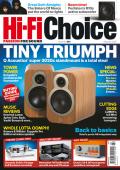 |
Inside this month's issue:
Q Acoustics 3020c standmount loudspeakers, Perlisten R10s active subwoofer, Quad 33 and 303 pre/power amps, Acoustic Solid Vintage Full Exclusive turntable, newcomer Fell Audio Fell Amp and Fell Disc and lots, lots more...
|
